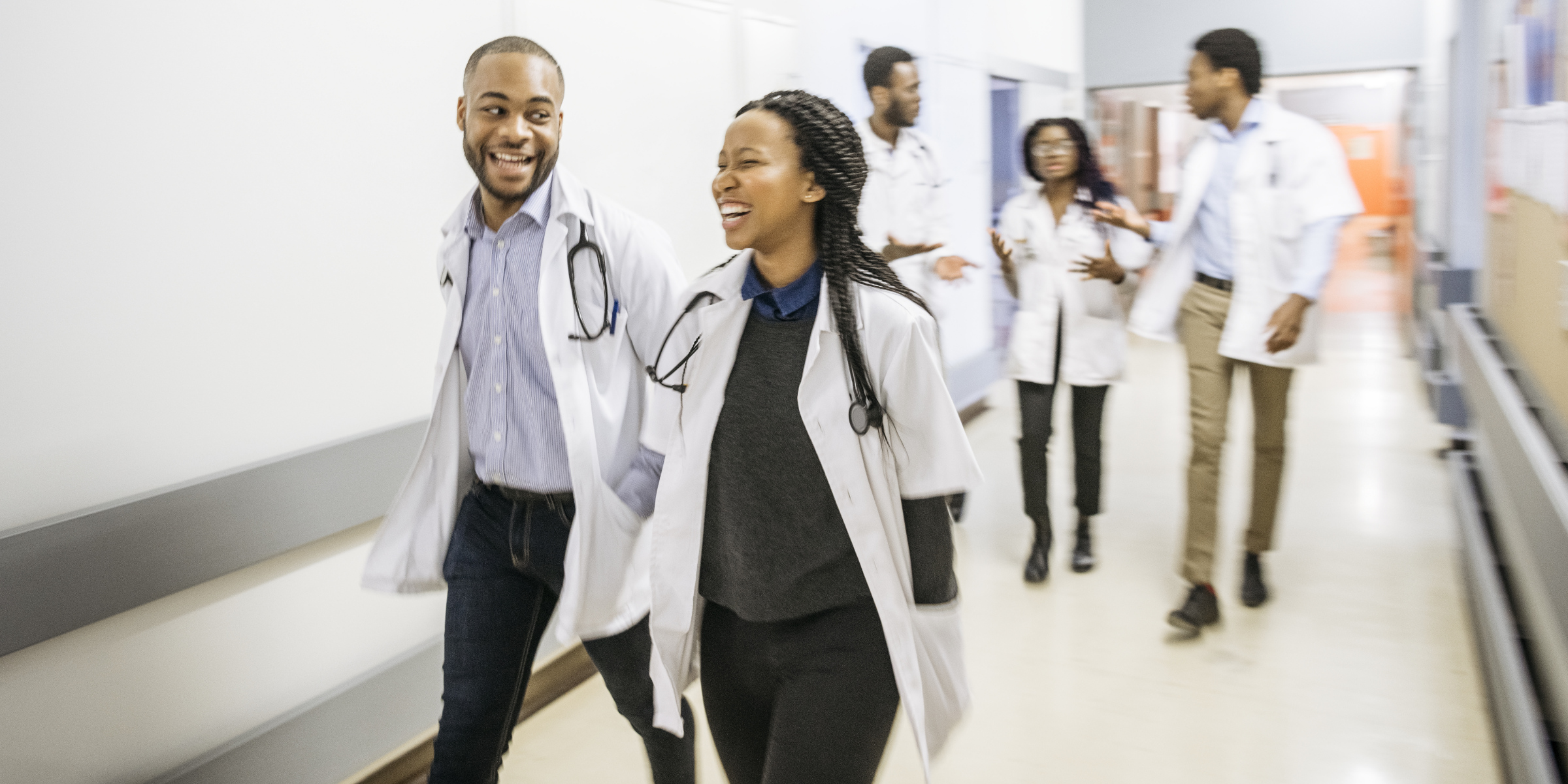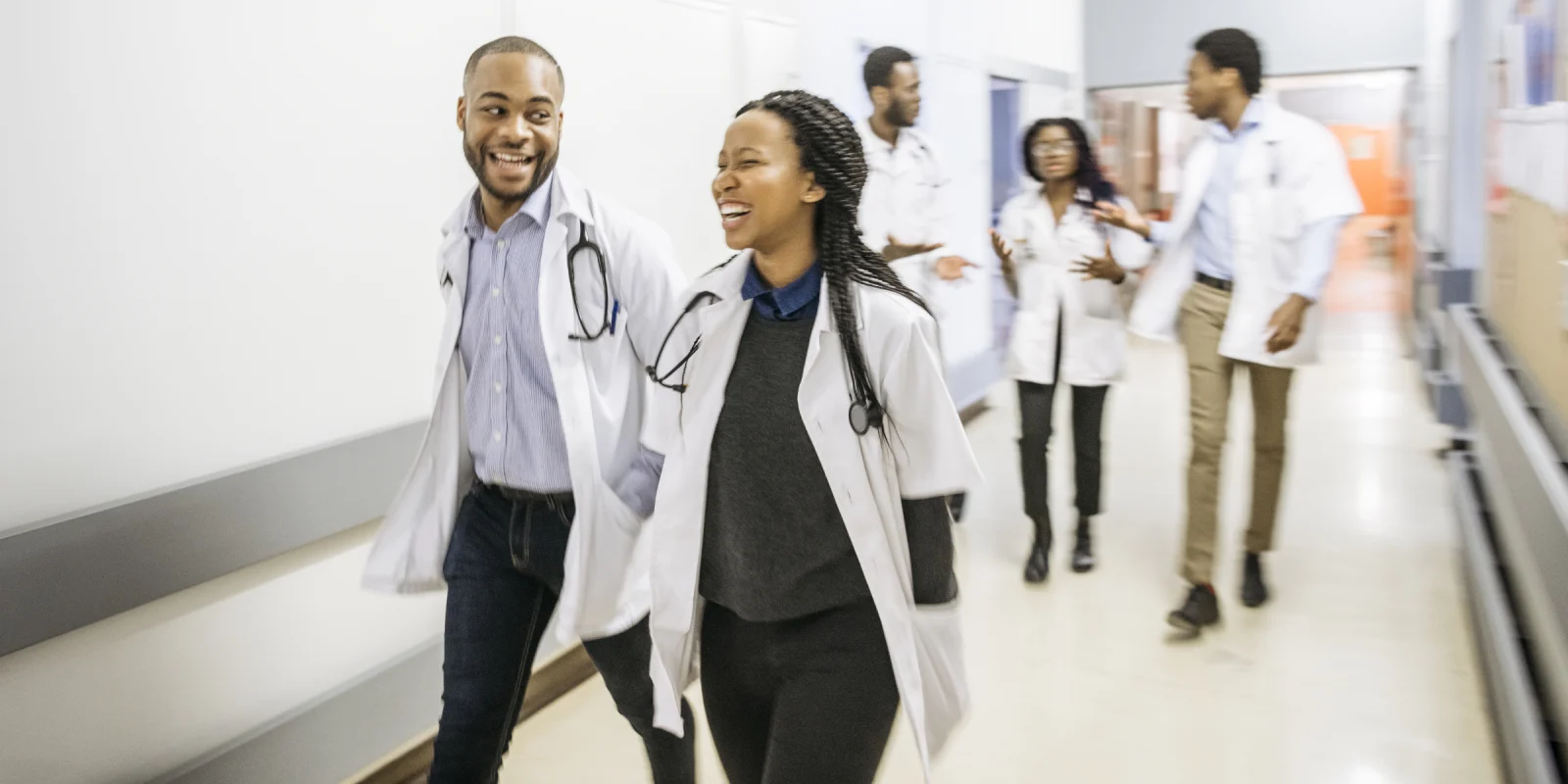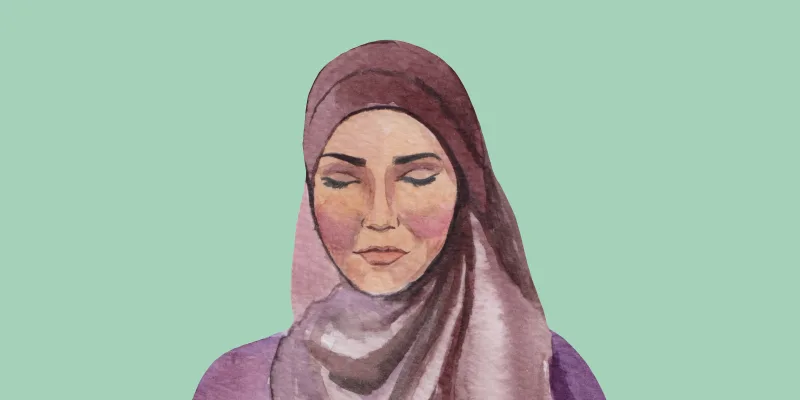
I recently returned to my high school for an event intended to celebrate the accomplishments of alumni who have earned a place on the school’s academic wall of fame. My mother, an employee at the school, couldn’t attend because she was in the cafeteria with the other food servers preparing the reception that would follow the ceremony.
Medical school changes you. Halfway through my first year on the wards, I started to feel confident standing at the bedside in my short white coat asking sick people hard questions and even feeling comfortable answering some of the medical questions they asked me. It’s a transition that all physicians go through and one that reverberates not only professionally but in their personal lives as well. But for the minority of physicians that come from low income backgrounds or are among the first generation in their family to attend college, these moments of transformation come at a cost; propelling them into a world of elevated status, far away from everything they’ve ever known.
In some ways, first-generation/low income (FLI) students are accustomed to the challenges of code-switching and moving up the social ladder since they’ve been doing it their entire life. Excelling in the classroom probably brought their family untold joy while simultaneously dividing them. Transitioning to college, where only 24% of students are FLI, forces students to learn how to navigate a new culture with a new language and customs. For many students like me, it becomes easier to hide your background than to explain why you’d rather eat your meals at the dining hall as opposed to the restaurant in town or why you choose to return to your minimum wage high school job over the summer instead of applying for unpaid internships or touring Europe.
If you’re able to make it through the constant reminders that with every step towards your goal you are a step further from the people you love and that others competing for the same 21,338 seats have gone to better schools and have better connections than you, then you can finally breathe a sigh of relief when you get your medical school admission letter (AAMC).
Except it starts all over again. This time the classes are smaller, as is the proportion of low income students, and not only do your classmates tend more to come from college-educated families, but they often come from families of physicians, some of which you’ll find teaching you at your home institution. And while you feel a world apart from Dr. Smith, while you’re walking in the hospital in your white coat next to your classmate Ms. Smith, support staff treat you like you too come from the same world of privilege. If you’re like me, you silently wonder if you belong more with them than with your classmates and professors and wonder which fateful decisions put you in the white coat and not in their shoes. You constantly feel like you’re one mistake away from failure and slipping back to where you came from, becoming just another poor kid who never made it out of their neighborhood.
Refusing to give in to the spiral of shame and self-doubt that nearly derailed my path to medical school, I decided alongside another FLI classmate to found the First-Generation Low Income Partnership (FLIP) at our medical school in order to create a community for other students that feel isolated at this turning point in their personal and professional lives. It serves as an extension of the group by the same name existing at the undergraduate college of our institution and is similar in purpose to groups that exist in other, but far too few, medical schools elsewhere in the country. Like the chapters of the Latino Medical Students Association and the Student National Medical Association that many like myself turn to for community, groups like FLIP serve a crucial and currently unmet need in American medical schools.
Medical schools must make a greater effort to recruit and support FLI students. There is an invisible minority full of potential and ambition but often lacking confidence and direction. Providing a place for these students not only increases the pool of future physician leaders that are likely to improve the needy communities they come from, but also facilitates social mobility and can help shift the perception of physicians from disconnected elites looking to get paid, to the natural attorneys of the poor and voiceless.
Randy Casals is a fourth-year medical student at the Columbia University Vagelos College of Physicians & Surgeons. He has matched in Urology and will begin his training at Wake Forest University School of Medicine after graduation.
Thanks to Roxana Martinez, for her constant support as co-founder of FLIP and assistance editing this piece and Dr. Hilda Hutcherson for her support of all minority communities as the Dean of the Office of Diversity and Multicultural Affairs at the Columbia University Vagelos College of Physicians & Surgeons.







